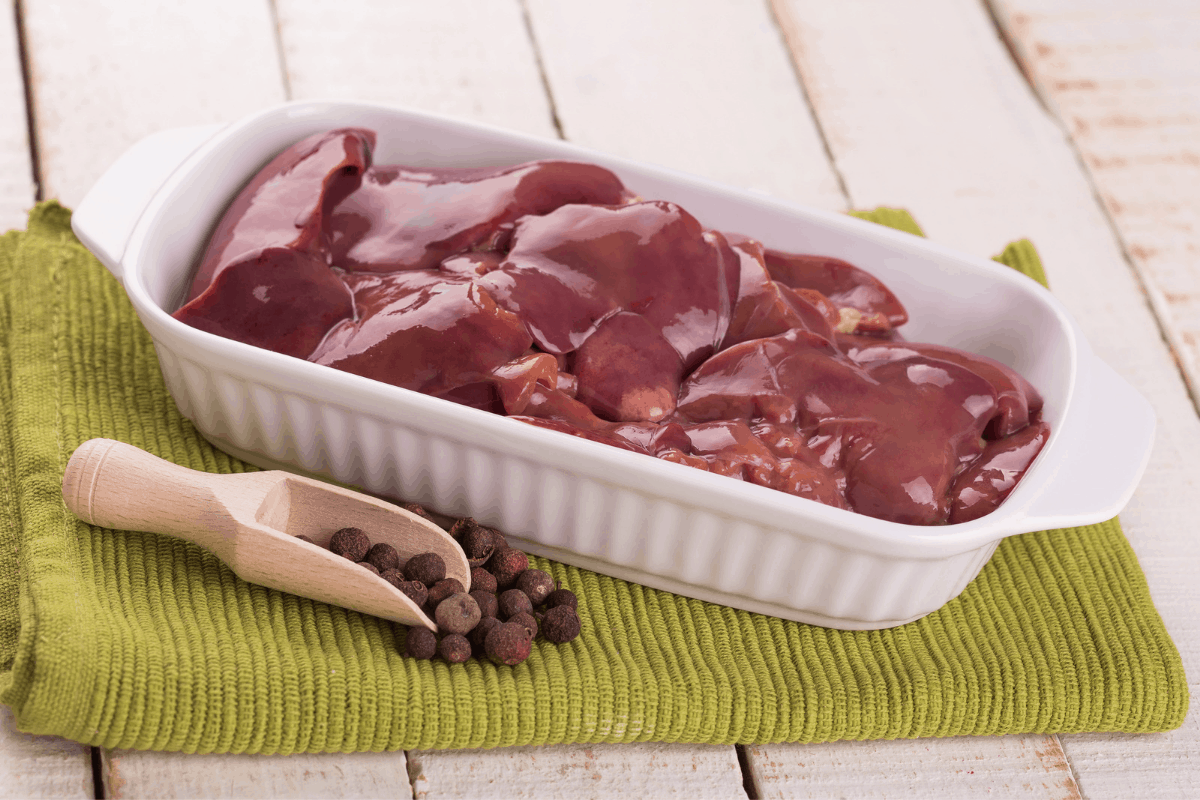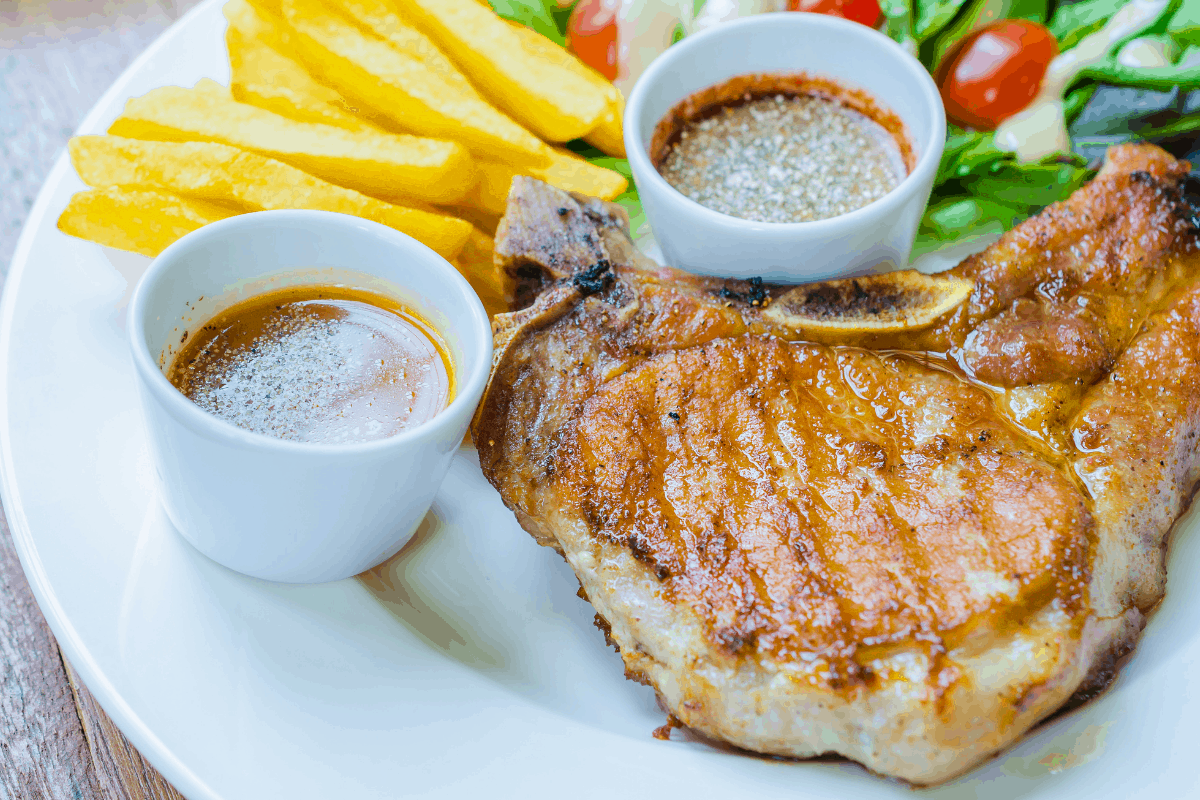I’m guessing if you are reading this that you have just discovered that chicken livers are a ‘thing’. Now you want to know what benefits are provided by eating them, and in what way you can incorporate them into your diet.
Well, read on and we will cover everything you will need to know about these healthy little morsels.
What are Chicken Livers? Chicken livers are the liver organ from a chicken. They are high in protein, and offer many vitamin benefits that will help to keep you in prime health. Chicken livers can be eaten in many different ways from pan frying to making Pâté.
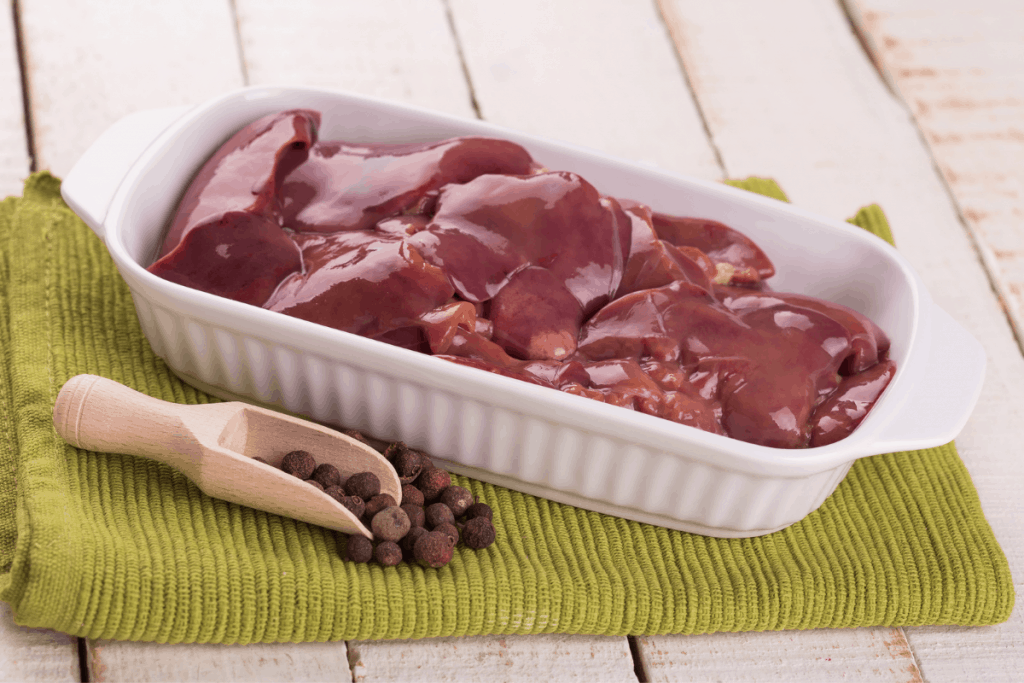
What Do Chicken Livers Taste Like?
The taste of the chicken liver can vary depending on how the chicken was reared and fed. The liver acts as a filtration system in the body and so can absorb some of the flavors that pass through the organ.
If the chicken was reared in an intensive style farming, and fed on mass produced foods, then the liver may have taken on some of the nastier flavors included in the feed and antibiotics used to keep the bird healthy. In some cases, the liver from mass produced birds can have an offputting metalic taste that may not be pleasant.
However, the livers from birds that have had a more ‘free range’ style lifestyle will likely have a much milder and more palatable taste.
Do NOT be put off by the thought of this though as there are ways to help reduce any offensive type tastes from the livers.
TASTE TIP: Soaking chicken livers in milk can help to remove some of the offensive taste from the liver, and provide a more mild and subtle flavor. Using water will also do this to some extent, but will not be as effective as using milk.
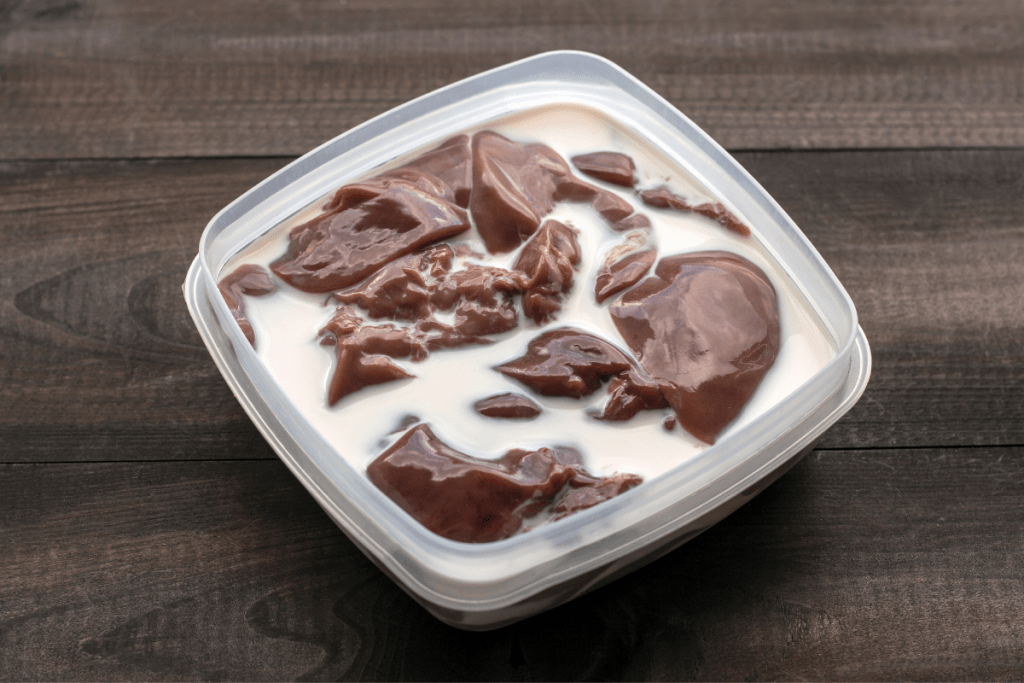
The Benefits of Eating Chicken Livers?
As mentioned at the start of this article, eating chicken livers can have many health benefits.
High in protein and loaded with vitamins, incorporating the livers into your weekly diet can help in the following ways.
Vitamin B12
Chicken livers are loaded with vitamin B12 and 100g will provide 287% of your recomended daily allowance.
Vitamin B12 helps with energy production and the nervous system in the body. It can also play a vital role in reducing the risks of cardiovascular disease, depression, and dementia which have all been linked with vitamin B12 deficiency.
Vitamin A
Chicken livers have very high levels of vitamin A, with 100g providing 222% of your recommended daily allowance.
Vitamin A can help with eye, bone and immune system health as well as reducing the risk of certain cancers.
Vitamin B5
100g of Chicken livers provides 65% of the Pantothenic Acid (B5) vitamin which is vital for the creation of healthy red blood cells, digestion and cholesterol synthesization.
Iron
High in Iron, 100g of chicken livers can provide 50% of your RDA.
Iron provides great health benefits to the blood and prevents deficiency ailments such as anemia.
As you can see, chicken livers really are providers of healthy vitamins and nutrients that are vital for us to maintain a healthy body. Finding a way to introduce them into your weekly diet will certainly see you topping up your recommended daily allowances of essential vitamin intakes.
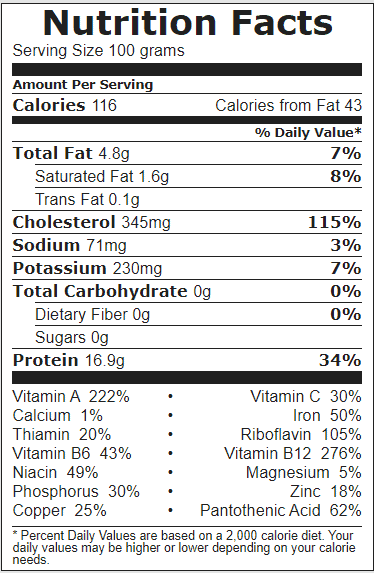
Drawbacks of Eating Chicken Livers
As stated above, the high vitamin and nutrient levels provided by chicken livers can be very beneficial to keeping a healthy body.
However, as the saying goes, you can have too much of a good thing!
Getting too much of certain vitamins can begin to have the opposite effect and actually become detrimental to health.
For instance, pregnant women are advised against eating chicken livers as they provide too much Vitamin A that could be harmful to the unborn baby.
How Often Should I Eat Chicken Livers?
Although there are many health benefits to be found from eating chicken livers, it is essential that you limit your intake to safe quantities to ensure that you are not getting an overdose of vitamins and nutrients.
Have too much vitamins can be as deterimental to your health as not having enough.
The high vitamin and nutritional content of chicken livers means that you only need to eat them about once per week to get the recommended benefits they provide.
If you are taking supplemental vitamins as part of your daily health routine, it is essential that you ensure that introducing chicken livers to your diet will not lead to a vitamin overdose.
Where to Buy Chicken Livers
Purchasing the livers will depend on the type of stores you have around you.
Many Asian food stores that sell fresh meat will probably also carry chicken livers as they are used in many Asian food dishes.
Some independent meat market or butcher shops may also carry them fresh, and probably frozen of not fresh.
With the increase in people eating a Paleo type diet, chicken livers have become increasingly popular and so are once again carried in the larger grocery stores and supermarkets. If you do not see them in the fresh meat section of thre store, then you will probably find them in the freezer section.

How to Store Chicken Livers
Fresh Chicken Livers
If you have purchased the livers fresh from an independent meat store, and they were sold loose, then you will want to keep them refrigerated and use within a couple of days or freeze them for later use.
If you purchased them fresh from a grocery store, then they were probably sold in a carton or package that should be labelled with a ‘use by’ date. The date provided is the last day on which the livers are considered safe to eat provided they have been stored correctly.
Frozen Chicken Livers
Frozen chicken livers will be sold pre-packaged and should be stored in your home freezer until you are ready to use them. It is advised that they be used within 1-3 months of purchase as they are a delicate product and may be prone to deterioration of quality if left frozen for longer periods
Defrosting
When ready to use, remove the required amount of livers from the freezer 24hrs prior to needing them and defrost in the refrigerator.
Once defrosted use within 1-2 days.
Refreezing!
If the package of frozen livers is more than you need for one sitting, then it is safe to allow the livers to partially thaw just enough to break apart the required amount. You can then return the excess partially frozen livers back into the freezer.
If the livers become fully defrosted, DO NOT refreeze them unless you cook them first!
Ways to Eat Chicken Livers
There are many ways you can add chicken livers to your weekly diet, even if you do not like the idea of eating them.
If you want to try the livers in their original form, then here are some tasty recipe ideas that could tempt you:
Pan Fried Chilli & Garlic Chicken Livers – @ Paleo Leap
Southern Fried Chicken Livers – @ Allrecipes
Chicken Liver Ragu – @ Homefood Tesco
If you are not convinced that you can eat the livers in their natural form, then Chicken Liver Pâté is a very tasty and easy way to enjoy the benefits of eating them without dealing with the cooking or texture.
Chicken liver Pâté can be found in the cooked meat section of the grocery store or you can have a go at making your own at home.
Chicken Liver Pate Recipe – @ BBC Good Food

As you can see, there are some real benefits to adding chicken livers to your weekly diet, and we hope this article has answered some of the questions you may have been asking yourself.
Whether you decide to cook the livers in a rich grave with onions, pan fry them with a sauce, or eat them as a delicious pate on toasted brioche, please make sure that you consider the advice given regarding the recommended intake, and try not to have too much of this good thing!
